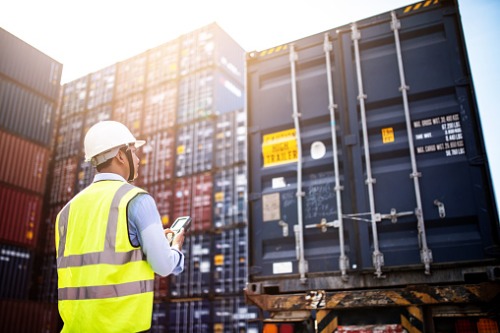

“Disruptions will not only be confined to the retail industry, with parties in the maritime sector already seeing the effects.”
Those were the words of Jonathan Moss, head of marine and trade at UK-headquartered law firm DWF, while shining a spotlight on the repercussions of COVID-19 on the shipping insurance industry. According to Moss, while retailers are being hit by supply chain disruptions due to factory closures across the virus’s originating country, ports are witnessing severe under-staffing.
For instance, Moss noted, only half of port officials and tug operators are working at two of the busiest container shipping gateways in the world – the ports of Shanghai and Hong Kong.
“No doubt, there will be an increase in business interruption, credit risk, and cargo claims, as purchasers along the supply chain are compromised by non-delivery and obligations stipulated in sale and supply agreements that are not respected will also give rise to insurance disputes,” stated the marine and trade head.
“Owing to reduced industrial activity in China, cancellations of voyages are increasing; cancellations in the trans-Pacific market already amount to the equivalent of 198,500 containers, and between Europe and Asia, 151,000 containers.”
Moss added that vessels are leaving Chinese ports significantly underloaded, a consequence of which is the erosion of profits to the point that shipowners are unable to cover fuel costs.
“This will have an impact on shipowners’ ability to pay premiums for hull & machinery cover in the event that the marine insurance market begins to harden,” he explained. “Shipowners are also failing to fulfil their contractual obligations under their charter parties, which is likely to trigger an influx of disputes with their charterers, leading to a rise in freight, demurrage, and defence (FD&D) claims and claims under charterers legal liability cover.
“Insurance disputes may focus on whether operating under cargo capacity renders the vessel ‘off-hire’ or not, and, if so, whether the shipowner is permitted to invoke force majeure. However, even if shipowners are able to benefit under the legal protections of force majeure (where the clause is sufficiently broad to capture the pandemic), this will not protect shipowners from the financial losses caused by the disruption.”
It was also highlighted that diminished trade is currently costing container shipping lines US$350 million a week in lost volumes.
Moss went on to state: “Shipowners may also face the costs involved with claims from cargo interests; namely, owners of the cargo which had not been shipped under the bills of lading (a detailed list, issued by a carrier, to acknowledge receipt of a ships’ cargo). We are also likely to also see an influx of claims under shipowners’ freight and cargo policies as a result, with many leading to coverage disputes.”
The DWF partner conceded that container ship companies as well as ports will be likely forced to absorb billions of dollars of losses given that epidemics and pandemics are usually excluded from standard insurance policies.
“Indeed, insurers have learnt from the catastrophic economic losses they incurred as a result of previous outbreaks – such as Ebola and SARS – to limit the extent of cover they offer,” he said.
